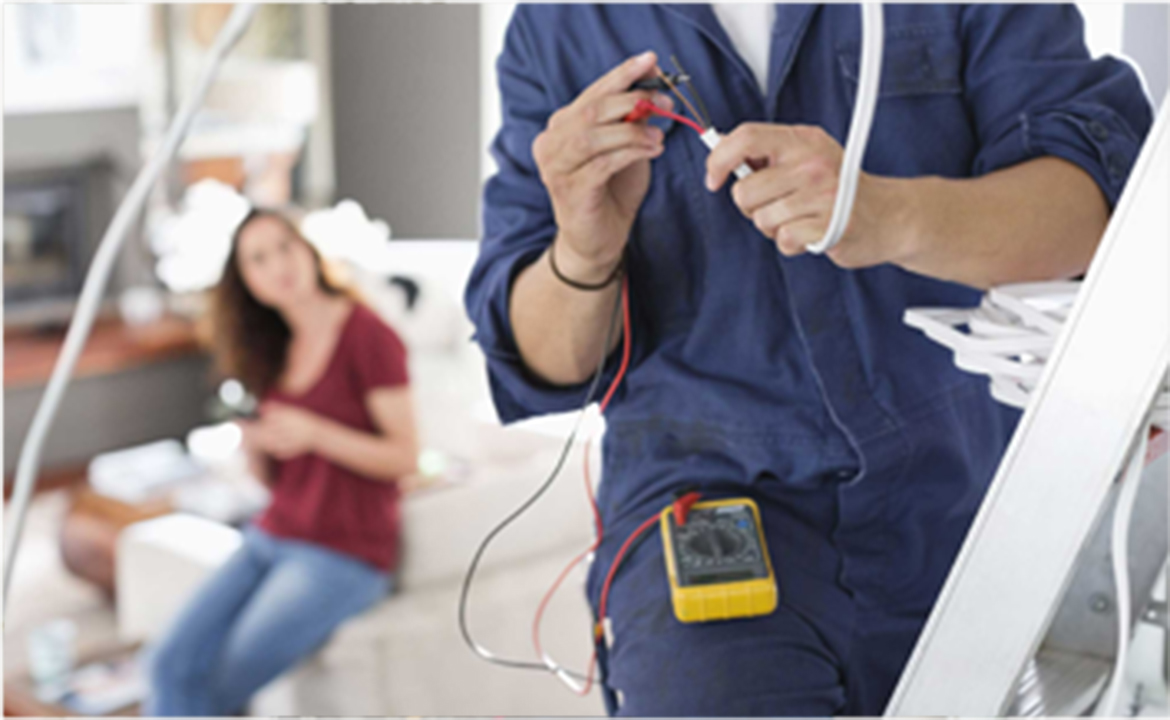
Do you find it challenging to communicate with your professional electrician?
Don’t worry! We have compiled the most typical electrical terms to help you converse with your electrician without any hindrances. So, let’s jump right into the most critical keywords of the electrical industry!
AMP
Amperage, commonly known as Amps, is a measuring unit to measure the number of electrons flowing through the circuit versus the force of which they are flowing. The number of amps mentioned on an electrical appliance denotes the electrical consumption needed by the appliance to function properly.
AC
This is one of the most confusing terms used by electricians. Most people misunderstand AC as an air conditioner. When electricians say AC, they talk about the ‘alternating current,’ which is the standard electricity format found in every household or commercial facility. Please note that AC is not the same as DC, which is commonly found in Batteries.
CIRCUIT
An electrical circuit refers to a singular loop where electrons flow. To operate any electronic device or machine, the electronic circuit must be complete. Your coffee maker, for instance, will not function unless the circuit is complete. The circuit can stop working due to several reasons, such as missing wires, water, or brewed coffee leakage into the warming element and fuses.
In case of an electric shock, the individual experiencing the shock basically completes the circuit. The electrons in an incomplete circuit head towards the earth and affect anyone and anything that comes in between.
CIRCUIT BREAKER
In simple words, the circuit breaker is an advanced version of a fuse. This essential device manages the flow of electrons, cutting down excess electricity when it is not needed. While fuses need to be replaced, circuit breakers are operated with on/off buttons.
SHORT CIRCUIT
A short circuit occurs when there is a breach in the normal full circuit. Several reasons cause this breach. The most common reasons include two bare wires meeting when they aren’t supposed to or liquid leakage between two wires.
SERVICE BOX
Service box is the central hub of your electricity supply that manages the flow of electricity in your facility.
It is the primary electrical panel that includes a fuse box, fuse panels, and circuit breakers. Service box is also referred to as the service panel or fuse box, although modern ones don’t actually contain fuses anymore.
GROUND FAULT INTERRUPT
‘Ground Fault Interrupt’ sometimes referred to as GFCI or even GIF, is a safety device to protect people against electrical shock. The device is usually installed in locations where there is a possibility of any liquid coming into contact with a wall plug. For instance, steam coming out of your kettle near a power socket can lead to a short circuit, but this won’t happen with a GFI. The GFI will automatically cut your power before it’s too late
CONDUIT
Conduit is the extra layer of protection wrapped around electrical wires to guard against damages to the wires and prevent accidents to people nearby. This is usually done on wires that are exposed on the outdoor surfaces of your homes or commercial facilities.
GAUGE
Don’t confuse a gauge with a meter. In electrical terms, a gauge is a measuring unit that measures an electrical cable or wire diameter. The greater the number, the thinner the wire. This contradiction can be a little baffling, but that is the way it is.
GAUGE
In simple words, volt refers to the electric potential of a cable or a wire. Every country has different voltage systems depending upon certain factors such as concentration, gas pressure, and temperature. That’s why you require special items such as chargers and cables to adjust the electronic pressure according to the voltage system of the place you are traveling to.
